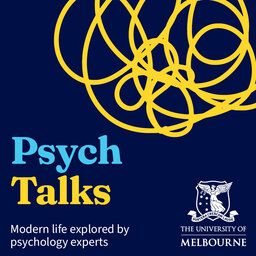Why do we keep secrets?
Unlock the psychological reasons behind why we hold onto secrets. Associate Professor Katie Greenaway and Valentina Bianchi explore the emotional costs and benefits of keeping secrets. Discover who we often confide in and hear a clinical psychologist’s perspective on being a professional secret-keeper. And take this survey at keepingsecrets.org to compare your secrets with others.
In 1 playlist(s)
PsychTalks
This is PsychTalks: a podcast that deep dives into groundbreaking research in psychology. Hear psych…Social links
Follow podcast
Recent clips

Do we ever stop being curious?
45:34

Shelf deception: How does marketing on packaged foods influence us?
31:14

Why is misinformation so powerful?
28:09
 PsychTalks
PsychTalks